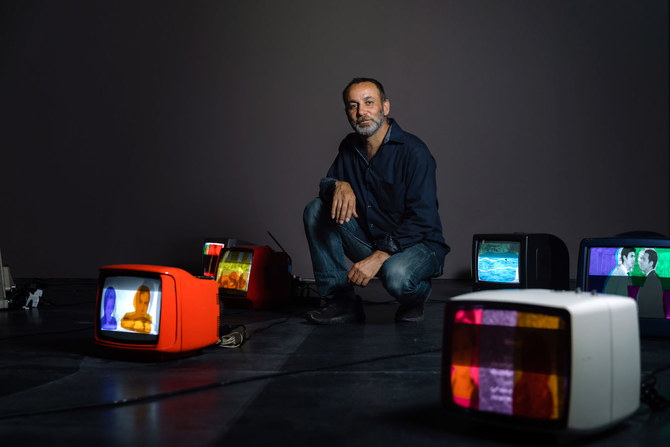DUBAI: When the Kurdish artist Hiwa K was a child in Baghdad, his mother noticed how he would crawl to a small canal near their home and pick up random items. Even their neighbor recognized his peculiar behavior. “He told my mother, ‘I don’t know what this guy will be, but he is very interested — he’s too curious,’” Hiwa, now based in the Iraqi Kurdish city of Sulaymaniyah, tells Arab News. “ She always said that was the beginning of my artistic practice.”
That childlike sense of curiosity seems to have remained with him, as evidenced by his latest exhibition — “Do you remember what you are burning?” — at Dubai’s Jameel Arts Centre, his first in the region. Old TV screens, scraps of raw material, and experimental video installations ultimately act as a self-portrait, reflecting Hiwa’s personal experience of warfare and estrangement as a refugee during the 1990s. In a statement for the exhibition, he writes: “People often ask me, ‘Where are you based?’ ‘On my feet.’ ‘Where are your feet based?’ ‘My feet are never based.’”
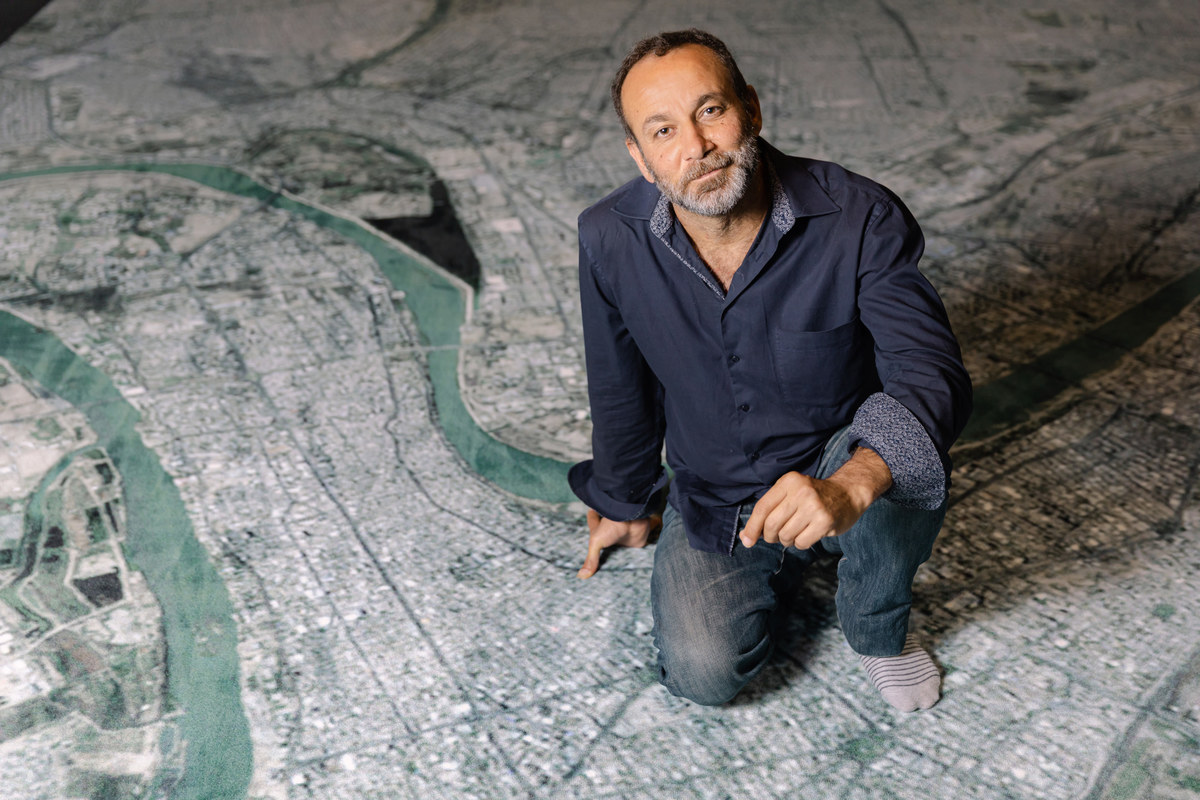
The exhibition gathers work from across the past 13 years of his career. (Supplied)
The show also serves as a commentary on Iraq in recent decades — tossed from one political conflict to another, from the Iran-Iraq war to the rise of Daesh.
The exhibition gathers work from across the past 13 years of his career, which he says has been touched by “beautiful times and difficulties.”
He adds: “I’m in a different stage in my life now. We are living in a very crucial moment. Globally we are on the edge of extinction now and we have to be even more direct. It’s time.”
Here, Hiwa walks us through a selection of works from the exhibition, which runs until July 24.
‘Do you remember what you are burning?’ (2011-2017)
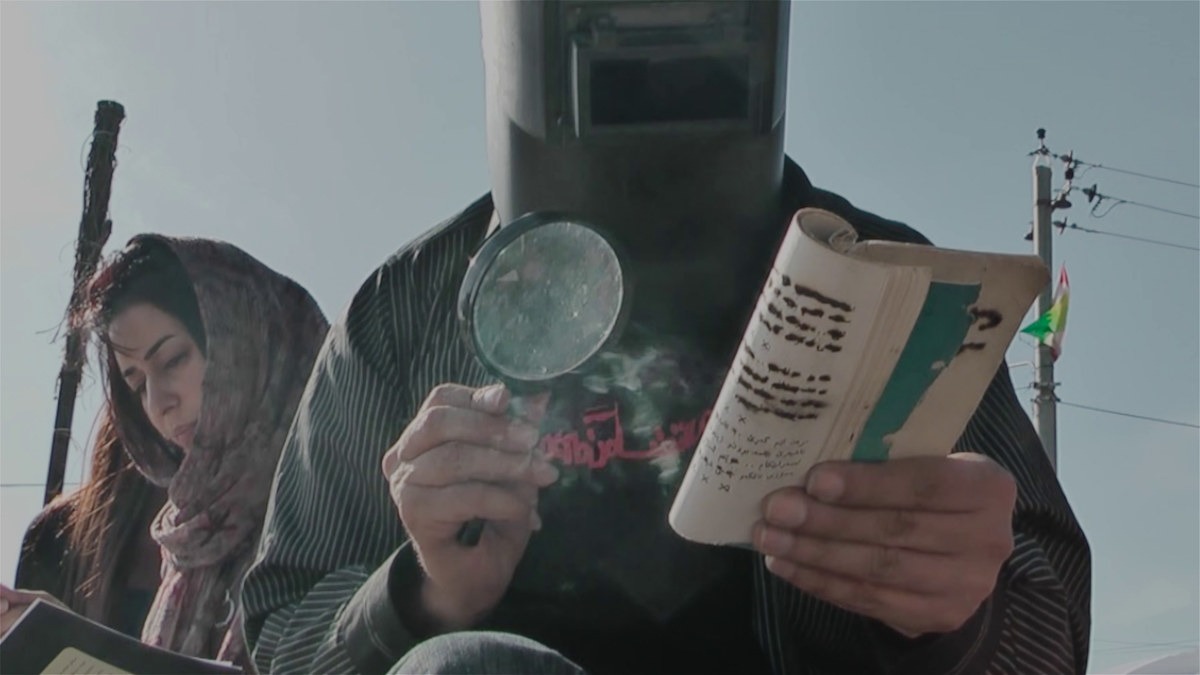
In 2011, after 60 days of peaceful protests, the Kurdish militia, who were supposed to be our brothers, started to shoot us and burned a stage used by activists. I made an announcement on Facebook and the network in Sulaymaniyah was really good, so people immediately shared it. I said we will gather in Azadi Square, where they burned the stage, and everyone should bring their favorite book and a magnifying glass — we are going to read and burn it at the same time. It was testing this border between the tongue and the heart. It’s very much a silent protest. There were 20 of us, but the militia started to participate with us by burning the books. I was burning a book and someone from the militia asked me, “Do you remember what you are burning?” Forgetting is very much a characteristic of the neo-liberal economy and fascism, because fascism is about destroying the past, not remembering, and just going to the future.
‘My Father’s Color Periods’ (2014)
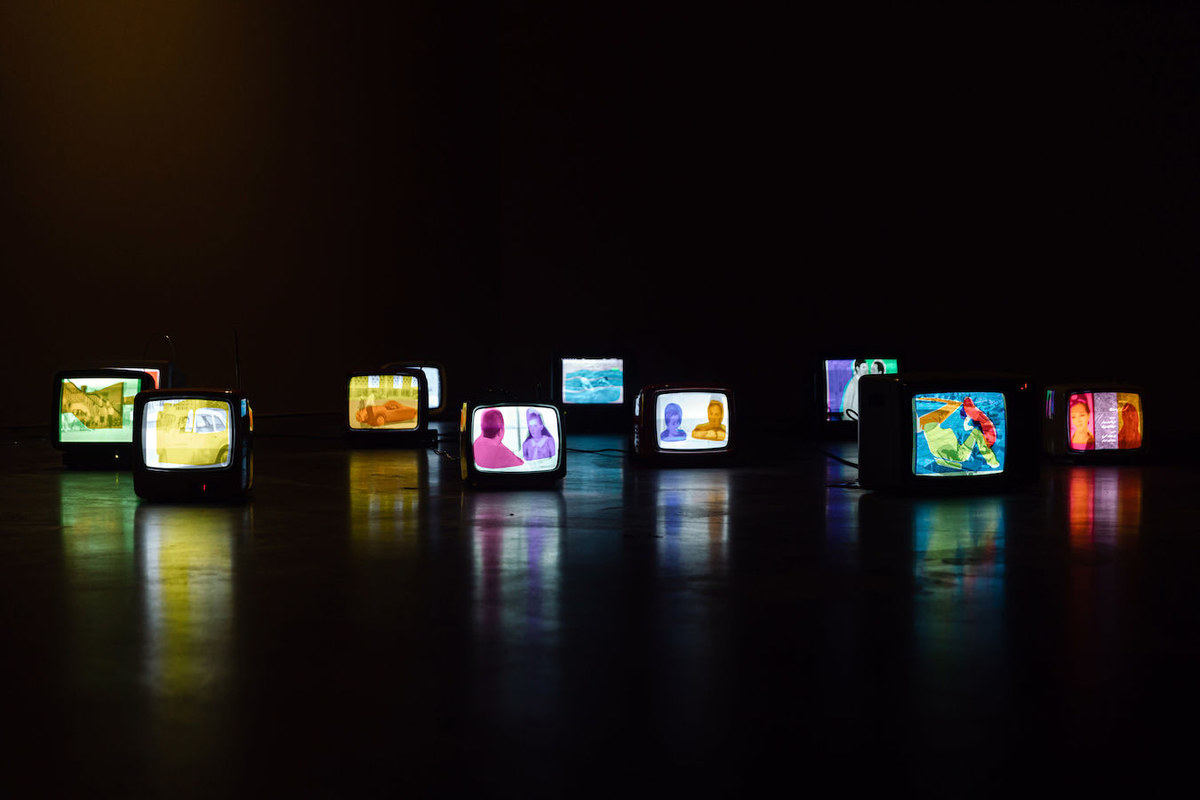
This is a form of silent protest. During my childhood, most TVs in the Kurdish area didn’t have color. Everyone would put colored cellophane on the screens. Because of a lack of technology, you had to be more innovative. It’s a very personal piece, because my father was a calligrapher and he was not only putting one or two colors on, like everyone was doing. He was performative, trying to play with it: If there was a nature scene, for example, he would put the blue sheet up and the green sheet down. Because this work is personal, it’s somehow very general. It’s not just about colors; it goes back to the idea of gaining power. Technology makes your life easier but also more meaningless, because it takes power from you.
‘The Bell Project’ (2007-2015)
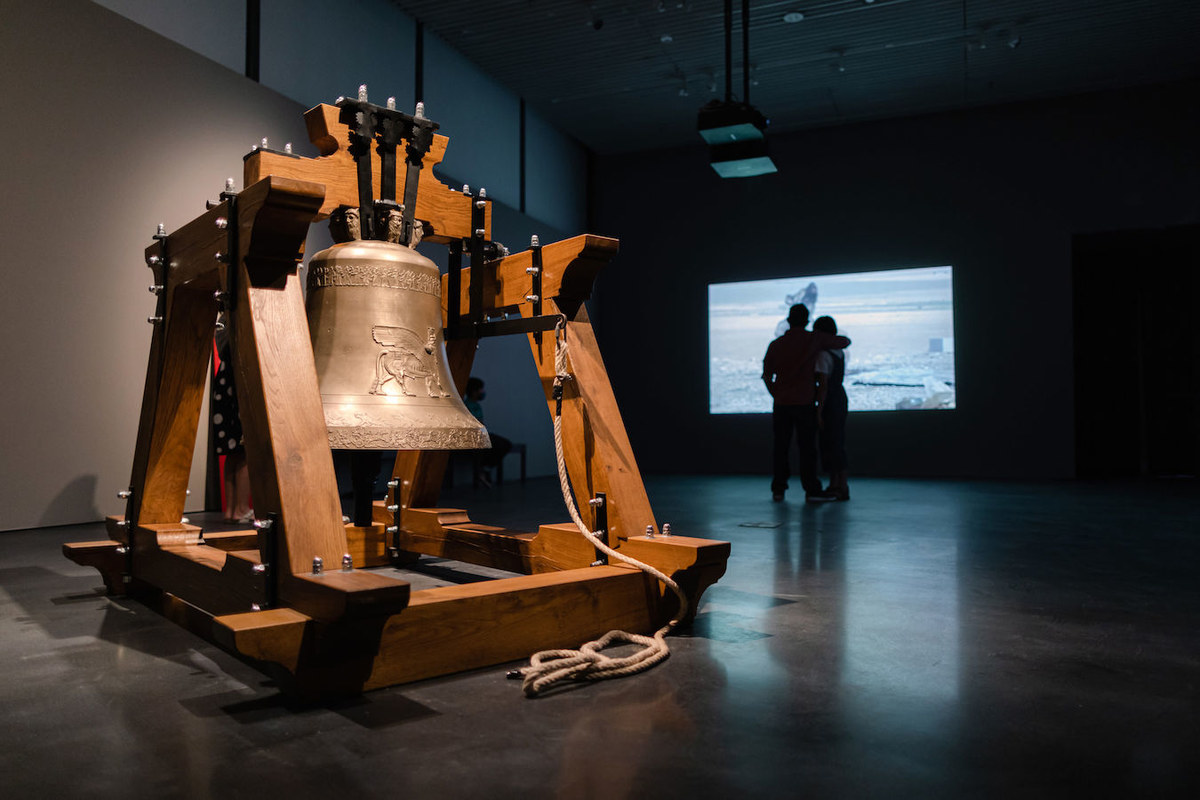
I met a guy called Nazhad, who was taking mines placed during the Iran-Iraq war from the borders. All the mines and weapons were going back to his foundry and he was melting them and making metal bricks. I was really interested in this guy because he’s an archive of many things: He knows which weapon was used where and from where it was imported. Indirectly, he tells you how many countries were involved in these wars and how our wars were the business of other countries.
Throughout history, bells have been melted into weapons and cannons. When I started working, I didn’t have the idea of making the bell. My gallery back then asked if I would make something for a church in Lucca, Italy, and the first thing that came to my mind was a bell. I filmed the process of making the bell, which took three months. I saw on the Internet that Daesh was trying to destroy artifacts from Mosul and Syria, so I put the Babylonian figures on it as a reference from the museums. A screen is a very ephemeral thing — it comes and goes. If you put it on a bell, it has 1,000 years of guarantee from the foundry, which was a very interesting timeline.
‘One-Room Apartment’ (2008-2017)
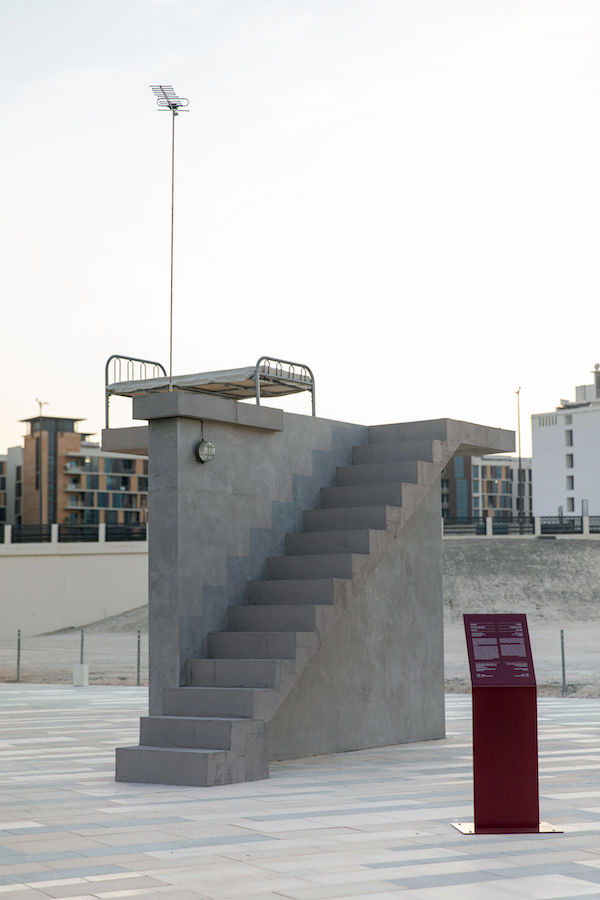
The concept started in 2007. I was searching for mines and I saw a few houses, which looked quite lonely: One person, one bed. This model for our society is very strange and alienating. I realized that it could be the symptom of a new system of individualism being brought into Iraq. When I was young, I was always unhappy about us being collective and thinking we should be like the West. All the young people are trying to copy this Western model of living alone, having your own freedom. It’s a lonely work. It’s very much set apart from the exhibition space — just like how the apartment was not in the city but near the borders of Iran.
‘View from Above’ (2017) & ‘Destruction in Common’ (2020)
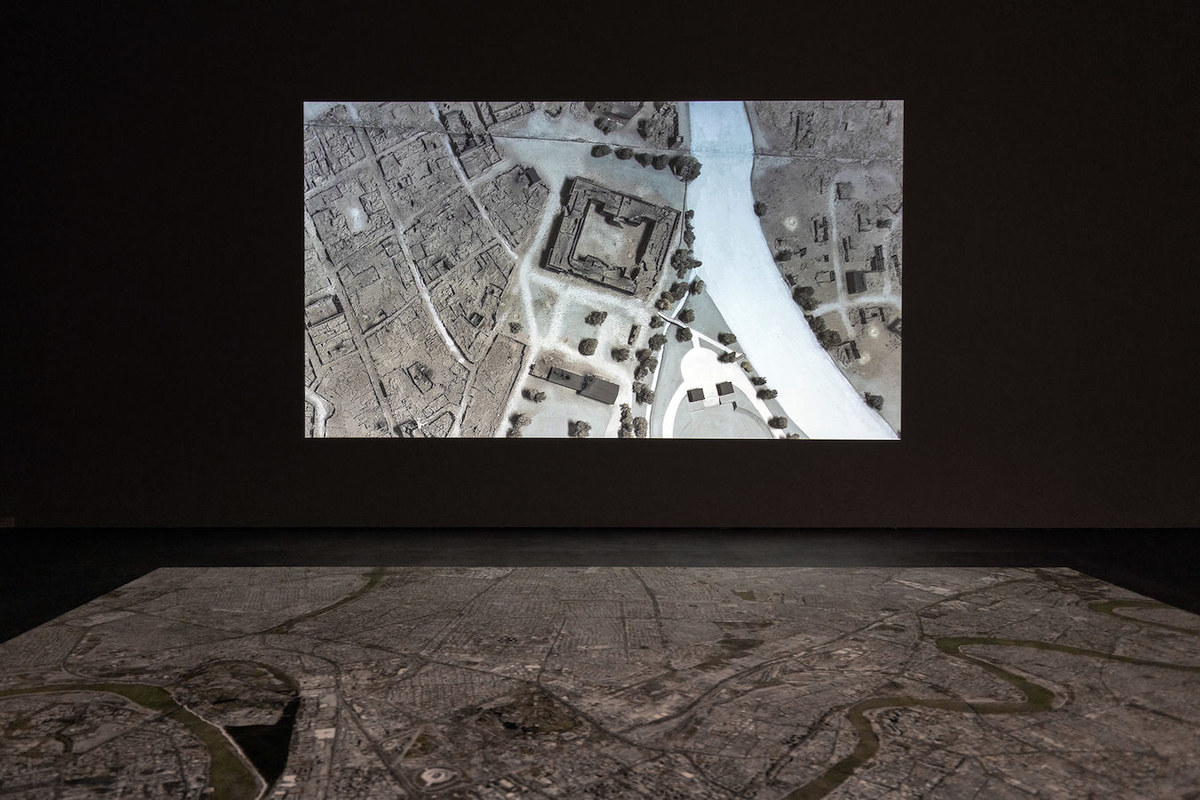
I made “View from Above” for Documenta, which takes place in Kassel, Germany, every five years. Kassel was almost completely destroyed in World War II. I filmed a model of the city, which was made in 1955, and I paired that with “Destruction in Common,” which is a carpet modeled on a city in Iraq. Kassel has been built again and there’s a big weapons industry there, which has sent weapons to Iraq, Turkey and other Middle Eastern countries. With “Destruction in Common,” I’m reminding Kassel that it was in ruins once and now it’s taking part in the destruction of other cities. It’s about power, making decisions. The people making decisions are detached from the reality in which people live, but they have the power.
‘Qatees’ (2009)
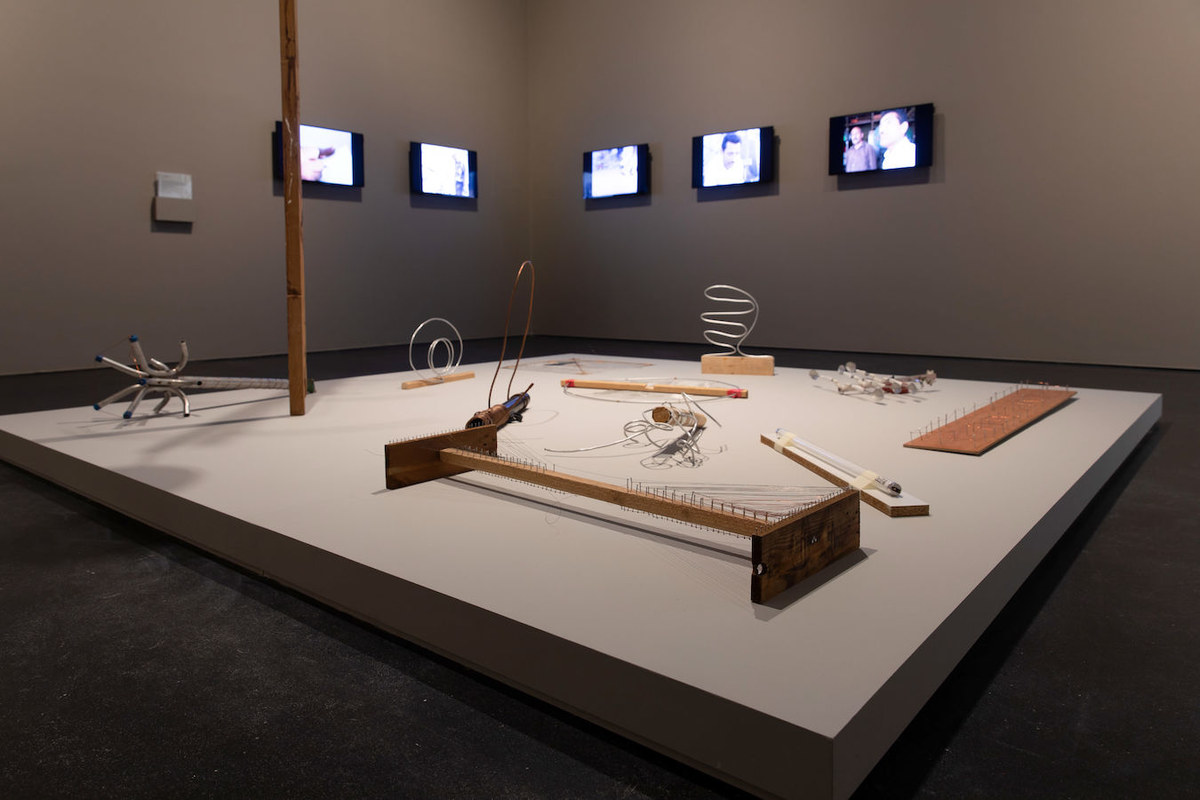
I was walking the streets of Sulaymaniyah looking for someone who could make antennas. In the Iran-Iraq war, people would build homemade antennas because on the official channels Saddam Hussein was claiming victory and Iran was claiming its own victory. We had to connect to these illegal channels, which gave you the lost half of the story. People would also search for news of their relatives on Iranian TV. I met Abas and his story was very interesting. He stayed home for almost two years. At the time, you had to hide from the neighbors, because they’d think you had deserted from the army and they’d call the Security Directorate. Abas was talking about the frustration he felt, trying to make communication, to reach something, somewhere. He would use anything he could from the house in order to get another channel from somewhere else. I spent six days with Abas. We went to the outskirts of the city where people had thrown away metal and wood. We took materials and built antennas — shown in the work — until one worked and we could get Iranian channels.



